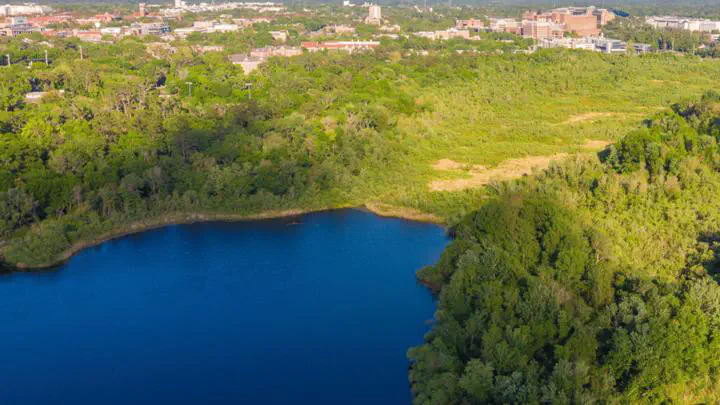Policy Advocacy in Science and Engineering Builds an Education-Focused Community as a New NSPN Chapter
 Photo by Michael Warren
Photo by Michael WarrenWhat is your chapter’s mission?
Policy Advocacy in Science and Engineering (PASE) was established in 2023 as a graduate student organization at the University of Florida. PASE is dedicated to teaching students how to practice social responsibility while providing them with opportunities to contribute to policymaking, primarily in the context of biomedical engineering, and other related fields. Additionally, it aims to promote societal and political welfare through civic engagement and science communication. Scientists and engineers are ethically bound to produce and communicate scientific knowledge in a sustainable, equitable, and inclusive manner—this is their social responsibility. Through our events and programs, we seek to introduce students to the concept of social responsibility in science, technology, engineering, mathematics, and medicine (STEMM) while providing them with the tools and training needed to serve as STEMM policy advocates.
What are some of your chapter’s current projects or recent successes?
Our chapter intends to host various events, such as speaker presentations, panel discussions, and science communication training sessions. Through these activities, we aim to educate students on civic engagement and science communication, thereby enhancing their marketable skills, deepening their scientific knowledge, and raising their awareness of potential career paths and funding opportunities. As a chapter, our focus has been on inviting faculty to deliver talks on their professional work and research, which are often centered around science and engineering education. Additionally, we advocate for the representation and involvement of historically underserved groups. We have successfully revived an organization that was inactive after the pandemic. Moving forward, our short to mid-term plan involves providing additional services related to proficiency in the policymaking process to our institution’s members.
How has the NSPN community helped your chapter?
NSPN has provided our chapter with funding for various professional development activities and strengthened our organization’s credibility and legitimacy by integrating Gator PASE into its larger science policy community. Has your chapter encountered any recent challenges, and if so, how have you approached those challenges? (This may not be used depending on how we word it and considering the risks, but) Our chapter has faced challenges as we tried to revive an older organization that was also focused on science policy. Registering our organization under the name PASE in the state of Florida has increased our awareness of the importance of language usage and the presentation needed to ensure PASE’s compliance with state regulations while still accomplishing our organizational goals. We have collaborated with our institution’s academic departments and prominent faculty members to sustain our activities and provide professional development events for our members.
If you had to describe your chapter in one word, what would it be?
Dedication. Our board and committee members are devoted to supporting our students’ education and professional growth while promoting social responsibility and fostering civic engagement.
What are you most excited about in the next few months?
We are excited to begin a series of workshop sessions aimed at training our members in drafting science policy documents and pitching policy proposals to potential stakeholders or lawmakers. We believe this initiative will offer students another viable career path beyond industry or academia.